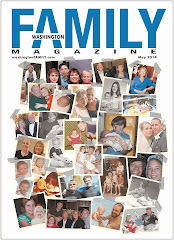Women make 85% of the buying decision in every household. It is pretty well understood that we control the purse strings in most households. Why is that women don’t understand financial planning? Of course financial planning is very important. I hope our young daughters are more educated and involved in financial decision than women in my generation.
I have to admit, I let my husband control that part of our marriage partnership. Should I be more involved? YES. But why do I not take action to be more educated and involved? There in lies the bigger question. Over the next couple of months, FAMILY Magazine is going to explore the topic of women and financial planning.
A friend of mine, Mario Gabalda, sent me an article from Financial Planning Magazine this morning that I feel compelled to share. Mario is a Financial Advisor with Ameriprise Financial Services in Tysons, Virginia. The article is talking to Financial Planners about women and how they make decisions. One particular quote from the article prompted me to action.
“… one in three women do not have a financial advisor but they are eager to work with an advisor to gain the tools and knowledge that they need.”
Do you have some thoughts on this subject? I would love to hear from you. Here is the article from Mario.
FIRMS STRUGGLE TO CONNECT WITH WOMEN AS THEY GROW IN WEALTH
By: Savita Iyer-Ahrestani
Financial advisors who think of women as a minority market segment probably need to think again.
Studies indicate that women are becoming a majority rather than a minority and represent one of the fastest growing client segments in the U.S.—a segment that both large financial firms and independent financial advisors cannot afford to ignore going forward.
Consider that 53% of women who participated in a recent Prudential Financial survey entitled “Financial Experience & Behaviors Among Women” are now the primary breadwinners for their families.
“Whether it’s because of their partners losing their jobs, because of divorce or because they’re deciding to marry later, women are increasingly becoming the major breadwinners in their households,” says Caroline Feeney, president of agency distribution at Prudential Financial. “We expect that this trend will continue as women are also graduating from school at a higher rate than men, successfully getting into the workforce and then succeeding at their jobs and rising in the ranks.”
All these social shifts have resulted in a sharp increase in women’s earning power and wealth creation power, says Teresa Dentino, founder and CEO of The Financial 411, a financial education firm in Woodside, Calif. Women today make up just under half of the nation’s millionaires, she says, and some have forecasted that they will hold two-thirds of the nation’s wealth by 2030.
Although many firms have recognized the great business potential that women represent and have begun to make serious efforts to better understand women and cater to them in a more productive and profitable way, Dentino believes that most still have a long way to go before they get a proper handle on how to really connect with women.
“While many firms are definitely taking note of the importance of women today, they still don’t quite know how to approach women in a meaningful way and to really understand women’s requirements,” she says.
Dentino believes that women need education more than anything else. As much as they may hold the wealth, most women have not had the direct experience needed to understand finance and financial planning, she says, so the onus is on financial professionals to give them the knowledge and understanding they need so that “women can connect the dots.”
“By educating women, you include them and this helps mitigate the lack of trust and fear they hold,” she says. “Education equals engagement plus empowerment.”
However, there’s a way to educate. More than anything, women don’t want to be talked down to, Dentino says, and the majority of financial advisors still feel like they have to “dumb things down” in order for women to understand them. Finding the right balance between bombarding women with technical jargon, graphs and numbers, on one hand, and “talking with them about their grandchildren or their kid’s school bake sale,” on the other, is the biggest challenge for advisors who want to reach out to women, Dentino says.
According to the Prudential survey, one in three women do not have a financial advisor but they are eager to work with an advisor to gain the tools and knowledge that they need.
“Advisors therefore need move from a transactional-based model to more of a relationship-based model, with a greater focus on education,” Feeney says. “The only way that women can become more confident about themselves and their financial planning abilities is when they get the knowledge they need and when they feel they can trust their advisor.”
According to Feeney, trust is at the core of what a woman wants from a financial advisor and is paramount in the female-advisor relationship.
“Our study showed that women are more apt to stick with an advisor once they have that trust in place, and they are more likely to place multiple products and service with one advisor,” Feeney says. “So while it may be additional work upfront in terms of education – both educating advisors on the importance of recognizing women as a potential market opportunity and then teaching them how to approach women correctly – I do believe that at the end of the day, it will be more than worth it for advisors to help female clients.”
That’s what Dentino believes, too, and she’s working with numerous financial firms to help them develop programs and train their sales staff on the many levels of adjustments they can make to better engage and serve their female clients.
